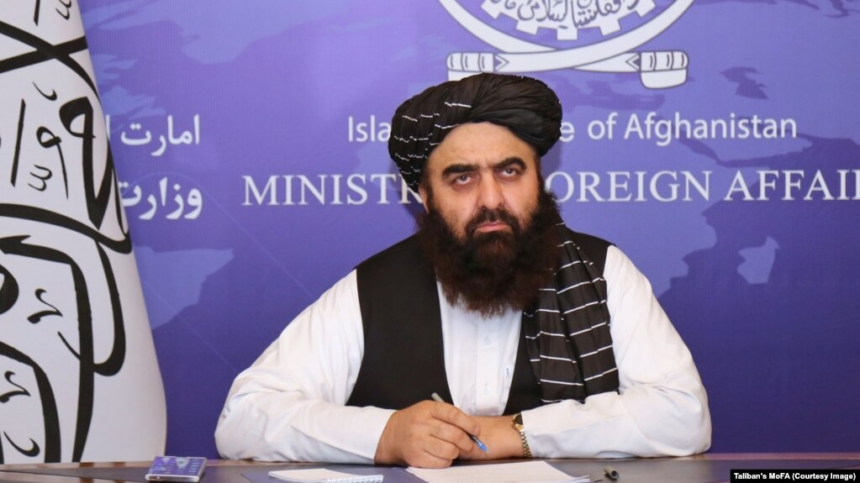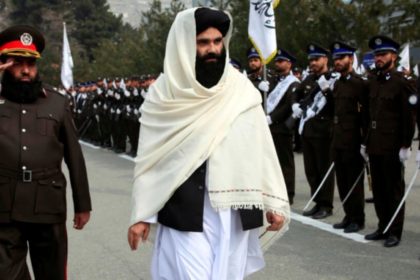RASC News Agency: A diplomatic impasse has emerged after Taliban officials confirmed that Amir Khan Muttaqi, the group’s acting Foreign Minister, has been prevented from traveling to Pakistan despite receiving a formal invitation from Islamabad. Sources familiar with the matter disclosed to regional media outlets that the trip remains indefinitely postponed due to the lack of authorization from the Taliban’s supreme leader, Hibatullah Akhundzada. Although nearly two weeks have elapsed since Pakistan extended the invitation, Akhundzada has yet to provide the political clearance required for the trip. This delay, insiders suggest, is not merely procedural but indicative of deeper internal divisions and strategic uncertainties at the heart of the Taliban regime.
Officials within the Taliban’s Foreign Ministry, speaking under condition of anonymity, acknowledged that no formal planning has been undertaken to facilitate the visit. Meanwhile, in a telephone conversation held just a day earlier, Muttaqi invited Pakistan’s Foreign Minister and Deputy Prime Minister, Ishaq Dar, to return to Kabul despite previously agreeing to visit Islamabad himself. That conversation took place in the context of a diplomatic exchange initiated two weeks prior, during which Dar, on a formal visit to Kabul, had encouraged Muttaqi to come to Islamabad to advance bilateral dialogue and reduce tensions. While the Taliban’s initial response to Pakistan’s outreach appeared positive, the current reluctance to proceed suggests a shift either prompted by internal political frictions or Akhundzada’s calculated resistance to deeper engagement with Islamabad. Analysts point to several plausible explanations, including the Taliban leader’s longstanding suspicion of Pakistan’s geopolitical ambitions or ongoing security-related concerns stemming from Pakistan’s volatile internal landscape.
The recent phone call between Muttaqi and Dar reportedly addressed a range of pressing bilateral issues, including trade disruptions, the prolonged detention of Afghanistan-bound goods at Pakistani ports, the complexities of regional transit routes, and rising tensions between Islamabad and New Delhi. Zia Ahmad Takal, Deputy Spokesman for the Taliban’s Foreign Ministry, confirmed that both parties agreed on the urgency of increasing high-level exchanges and resolving logistical bottlenecks in the region’s trade corridors. Pakistan’s Foreign Ministry also released a statement highlighting the key points discussed, noting that Dar had taken the opportunity to brief Muttaqi on what Islamabad views as provocative actions by India. The move is widely interpreted as part of Pakistan’s broader strategy to solicit diplomatic support from Kabul amid mounting geopolitical competition in South Asia.
Despite the Taliban’s public assertions of neutrality in regional conflicts, Islamabad continues to accuse the group of offering tacit support to Tehrik-i-Taliban Pakistan (TTP), a militant group responsible for a wave of attacks inside Pakistani territory. The Taliban have consistently denied these allegations, yet the issue remains a significant and unresolved source of friction in their bilateral relationship. Regional analysts such as Mohammad Radmanesh argue that Pakistan’s relationship with the Taliban has entered a more complex and unpredictable phase. According to Radmanesh, the Taliban’s opaque connections with militant networks along with their strategic value to Islamabad as a counterweight to Indian influence have turned them into both an asset and a liability for Pakistani policymakers.
As these intricacies unfold, the fragile state of Pakistan-Taliban relations is now marked by mutual distrust, conflicting agendas, and international scrutiny. The suspension of a single diplomatic trip ordinarily a routine event has instead become emblematic of the broader instability that defines South Asia’s shifting geopolitical terrain. In a region fraught with historic grievances, overlapping alliances, and escalating rivalries, even the smallest diplomatic hesitation may carry outsized consequences for regional peace and stability. The question now is whether either side possesses the political will to transcend these impasses or whether this episode marks the beginning of deeper estrangement between Kabul and Islamabad.






